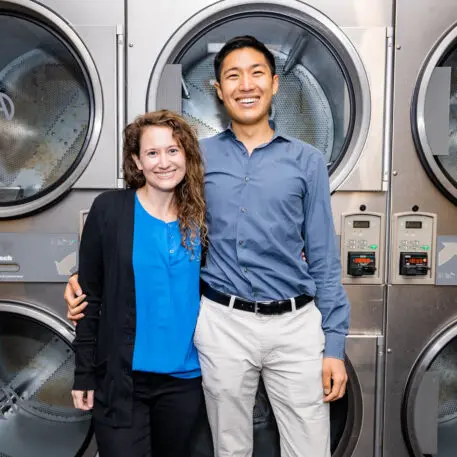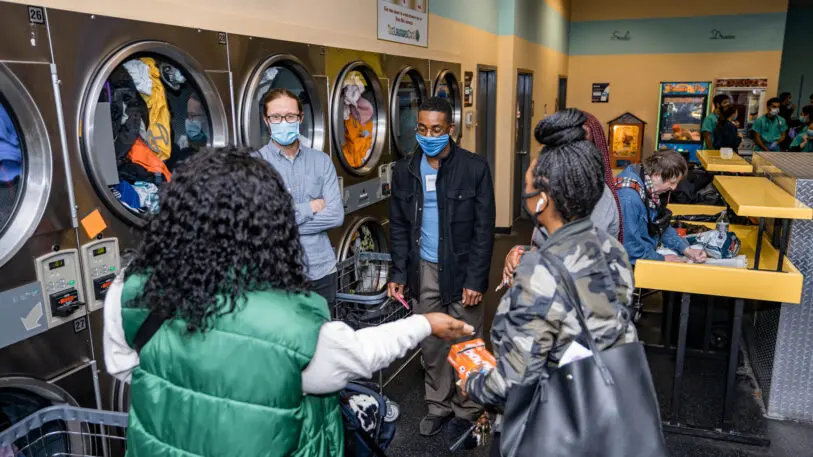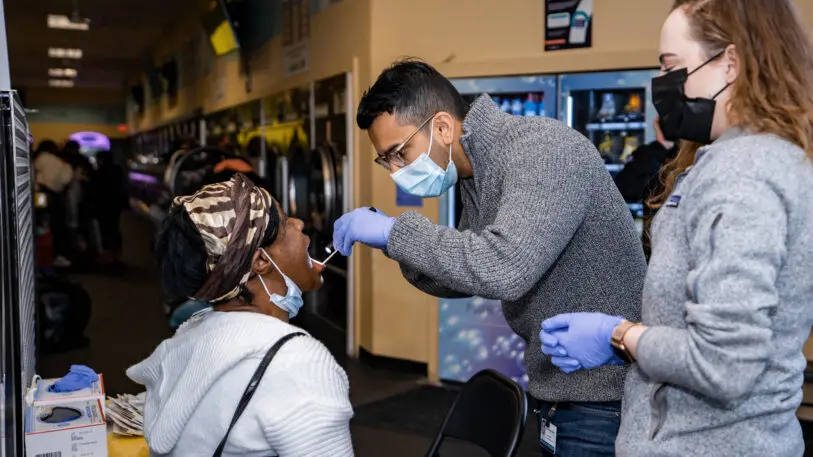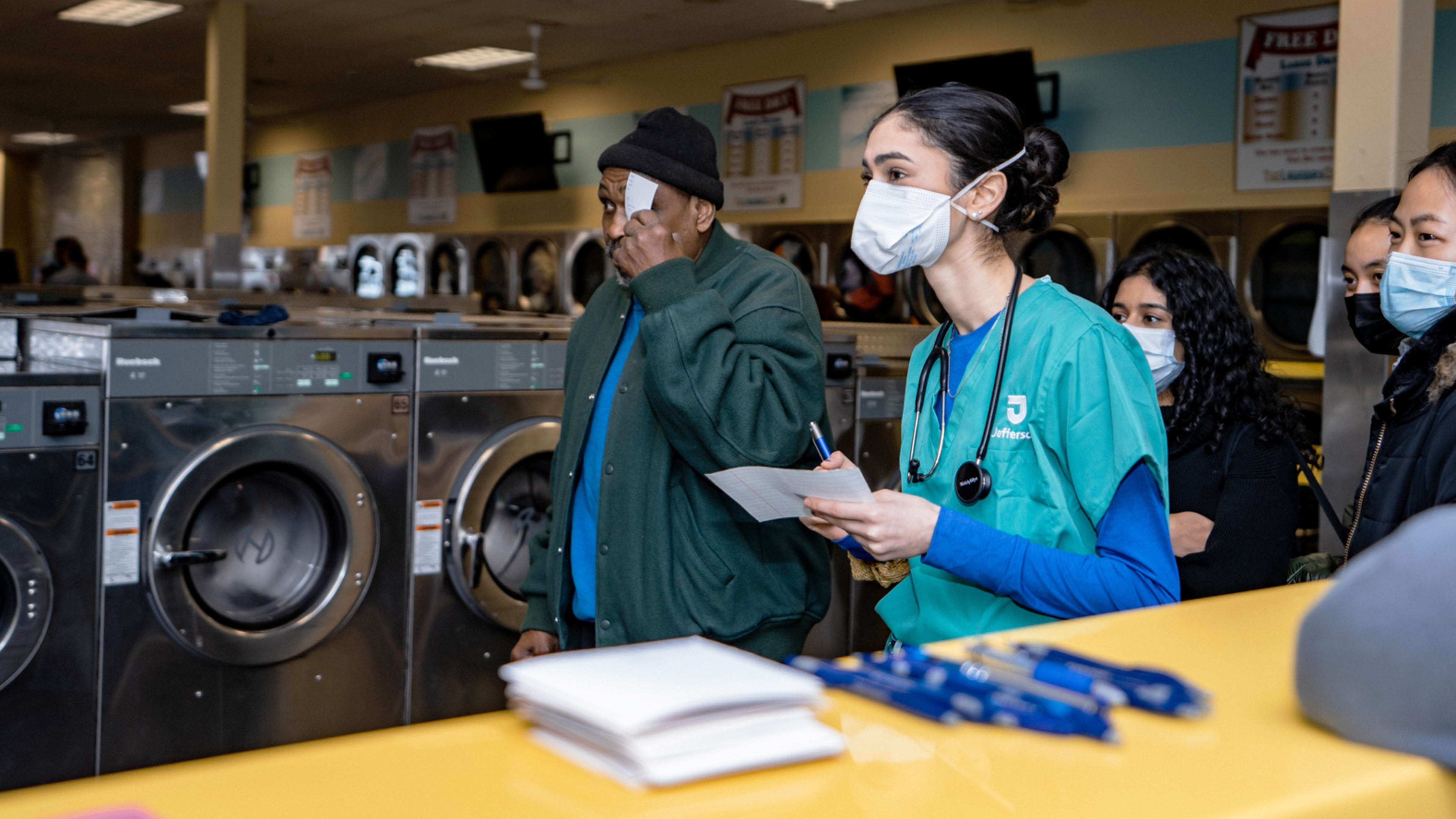On a recent weekend at a laundromat in North Philadelphia, while people waited for their clothes to dry they could choose to also get a cancer screening, have their blood pressure checked, or sign up for health insurance. The services were coordinated by Fabric Health, a startup that wants to improve access to healthcare by partnering with the laundromats that people already visit each week.
“You have to meet busy families where they are, in the time that they have,” says Fabric Health cofounder Allister Chang. A typical family that uses a laundromat might spend two hours each weekend in the space—sitting on plastic chairs with little to do as they wait for loads of laundry to finish washing and drying. The same customers are also less likely to have time to go to the doctor during the week.

The startup works with health insurance companies that want help improving their customers’ outcomes. In many cases, insurers don’t even have basic contact information for customers. Fabric’s team goes to laundromats during busy hours, often greeting people at the door and offering to help carry in bags of laundry—and sometimes offering a card for a free load of laundry—and then talks to them about their health concerns.

Working with Pennie, Pennsylvania’s health insurance marketplace, the startup also helps people who are uninsured (because of language barriers, lack of internet access, or other challenges) enroll in plans. Fabric Health can also help people navigate applications for SNAP, the federal food stamp program.

It’s important to actually build relationships, Bragg says. “You’ve got to make a commitment to community,” she says. “I think people are skeptical of people who kind of parachute in and out. And so we don’t just leave.” But the team also wants to embed deeply in other communities. With a new investment from the Richard King Mellon Foundation, the startup plans to expand to Pittsburgh, and the model could work nationally.
“There are more than 30,000 laundromats across the U.S.,” Bragg says, where millions of Americans spend 100-plus hours each year. “Our obsession is with that time that people spend in them. There’s just incredible opportunity that we’re really excited about.”
Correction: Due to a transcription error, a previous version of this story misstated the number of laundromats in the U.S.
Recognize your brand’s excellence by applying to this year’s Brands That Matter Awards before the early-rate deadline, May 3.
